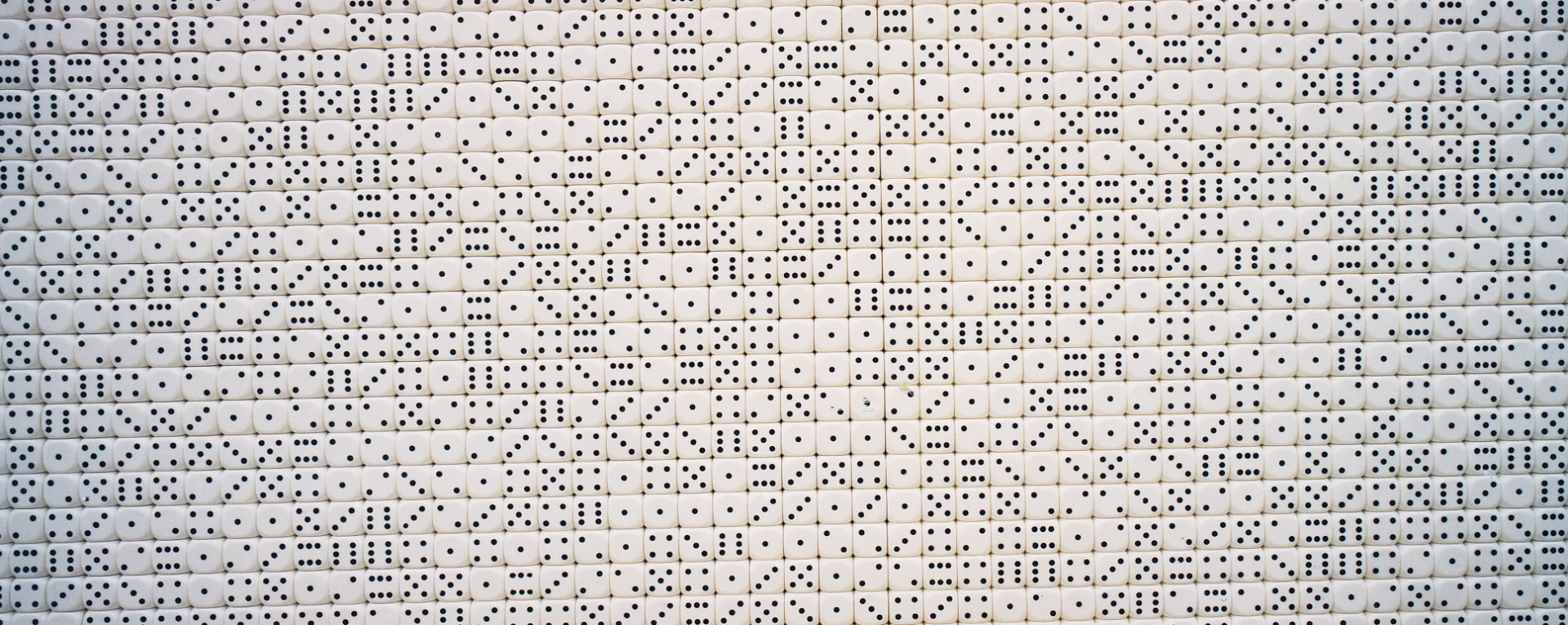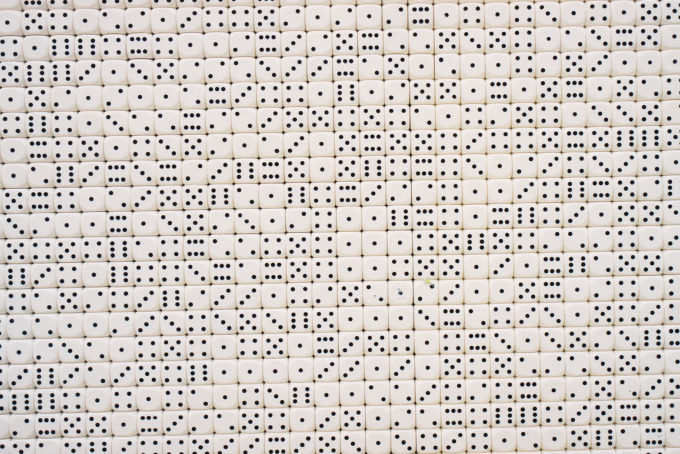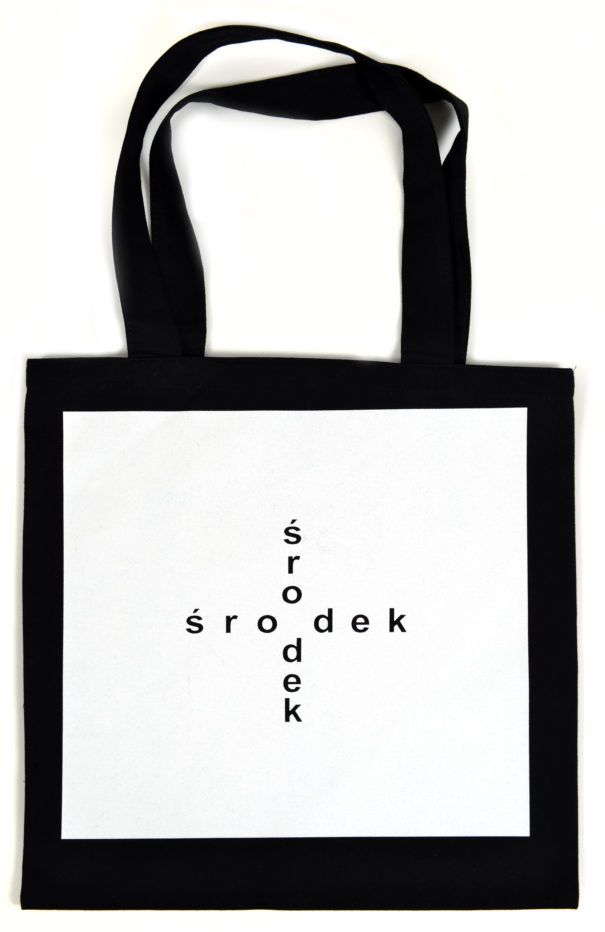
Alea Iacta Est
Stanisław Dróżdż
Stanisław Dróżdż was one of several international artists invited to participate in the Kunst im der neuen Messe project coinciding with the 1997 Leipzig book fair. For his contribution, odtąd dotąd, he covered a wall nearly 80 metres wide with the Polish words “odtąd” and “dotąd” (“from here” “to there”). Written in large cut-out letters and repeated countless times, the words were scattered across the entire surface so as to form all sorts of combinations. Dróżdż recalls a conversation with one of the German guides who did not need to refer to the meaning of the words to perfectly grasp the artist’s intention, saying he “felt as if the work were pushing the walls of the building apart.” Such spatial-textual arrangements are typical of many other projects by Dróżdż. His work relies on understatement and loose associations to produce numerous meanings and enable many often surprising potential readings as a statement on philosophy, existence, and even mathematics and physics.
The artist usually works with simple words, sometimes letters or numbers, out of which he forms set phrases. He acts in accordance with the basic premises of conceptual poetry in which, as Eugen Gomringer puts it, “all that is necessary is the rhythmic succession of ordered syllables; the text merely exists without need of any sublime, explanatory additions: bare, naked, alone.” Dróżdż has always been interested in something more than just dry representation of semantic games on a sheet of paper. Throughout his work he had sought to place his texts in three-dimensional space in order to transform their addressees from readers in control of the text into viewers who are active participants, and even elements of the work. Early on in his career, in 1967, Stanisław Dróżdż defined his mode of expression by coining the term “conceptiforms” which, as he wrote, “must be unconditionally accepted by the viewer and, regardless of his will, make him part of the reality they frame.”
In 1977 in the 30 square metre space of Warsaw’s Galeria Foksal the artist created an extraordinary, visually and intellectually stimulating work which was to become the subject of numerous discussions and interpretations. On the walls, ceiling and floor of the gallery he placed (randomly it seemed) letters making up the Polish word między (“between”). Anybody wanting to read it was forced to scan the entire gallery interior. Consequently, viewers came to realise that, instead of reading, they themselves were being read by the surrounding text, and that the word “between” aptly conveyed its meaning by precisely defining the place of the viewer in relation to the work.
In response to the topic of this year’s Biennale: Dreams and Conflicts – The Viewer’s Dictatorship, Stanisław Dróżdż has conceived an installation reminiscent of między in Galeria Foksal. This time he uses dice instead of letters, while viewers are not asked to read text but to seek out a particular arrangement of die-faces among the combinations covering 250 square metres of wall. Upon entering the room the viewer sees a table with six dice laid out on the top. The instruction reads: “you are a player of the game; throw the dice; lay them in a row; find the arrangement among the 46,656 possible combinations on the wall; if you find it, you win – if you don’t, you lose.” Taking the work’s title from Caesar’s famous saying Alea iacta est the artist seems to be saying that “once you’ve picked up the dice there is no turning back; whether you like it or not the choice has been made and you are now part of my work.” Dróżdż has chosen the format of a game because it is in games that conflict finds its archetypal expression, and the intensity of that conflict is directly proportional to the desire to win. The game is a provocation – once cast, the seemingly innocuous dice involve the viewer’s emotions. How far players are willing to go in the game is irrelevant: it does not matter whether, or how avidly they search for the combination; whether they find it or not. A flicker of emotion is enough to realise that all conflict is rooted within ourselves and our desires. We are drawn into different games every day, just as every day we come into conflict. Stanisław Dróżdż shows us a way to avoid such conflict: the only solution is not to take up the die. His proposal is as usual simple, though profoundly complex: by setting up a premeditated situation he forces response and involvement at several levels: visual, emotional and rational.
- YEAR2003
- CATEGORY Biennale Arte
- EDITION50
- DATES15.06 – 02.11
- COMMISSIONERAgnieszka Morawińska
- CURATORPaweł Sosnowski


